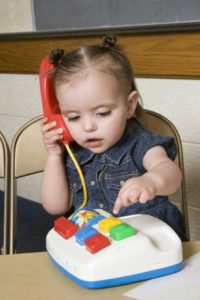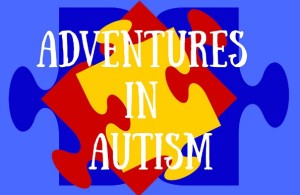Editor’s Note: Abby’s wonderful article does not and is not meant to represent all people with autism or parents with children on the spectrum; rather, this opinion post is meant to increase sensitivity toward and awareness of autism. Many inspiring ideas are found here, and should be prayerfully applied to your life.
In the words of Tom Christofferson (who applied this particular teaching to an LGBTQ perspective, but that I’ve found applies to nearly any situation), “I often hear, ‘I want to reach out more . . . but I’m afraid I’ll say something offensive without knowing it and certainly without meaning it!’ May I suggest, if this is your feeling, that you simply begin your conversation by expressing that feeling? Few things open doors of understanding more effectively than an honest acknowledgement of the desire to be taught” (That We May Be One, “Introduction”).
I know that most people want to be there for their friends and family when they are going through a hard time. But sometimes we say some hurtful things to each other. We may be trying to be supportive, or we may seriously have no idea what we are talking about. In an effort to help us all get along better, and be a true support to one another, I have compiled a list of some of the things autism parents often hear. These are from my experience, and from friends’ experiences on the Big MAK’s Facebook group.
 I’ve included below as many comments as I could, along with the reason that the comment isn’t helpful. I hope that in seeing behind the mask we often wear as autism parents, you will begin to really understand life in our homes. And before you begin to feel offended, know that I’m not singling you out. When I use the word “you” in these comments, please know that I’m not referring to you specifically, but as a generality.
I’ve included below as many comments as I could, along with the reason that the comment isn’t helpful. I hope that in seeing behind the mask we often wear as autism parents, you will begin to really understand life in our homes. And before you begin to feel offended, know that I’m not singling you out. When I use the word “you” in these comments, please know that I’m not referring to you specifically, but as a generality.
Many of these comments come from other autism parents and are directed at others in the autism community. We say them to each other without realizing the hurt we are inflicting. I mean, 17 hours after posting and asking for examples, there were over 131 comments. That is a lot of hurt feelings!
I originally reached out to the Big MAK’s (Moms of Autistic Kids) to get some feedback and hear some of the things they are told. My small list of personal pet peeves quickly grew to a list longer than my arm. We have not been kind to each other (sometimes intentionally, but sometimes simply out of unintentional ignorance)! And this list proves it. So please, read with an open heart. If you find yourself in these comments, don’t stress! Honestly, we’ve probably all been guilty of saying at least one of these things. I’m just opening up the conversation so we can all better support each other. And mistakes are just a sign that we are learning.
So here it is—the definitive list of truly cringe-worthy comments people have said to me or to some of my friends. A special thank you to the Big MAK’s Facebook group.
#1: But he looks so “normal.”
 Autism is one of those “hidden disabilities.” I personally don’t see it as a disability, simply as something to overcome. But recently I have seen the other side of autism; the harder-to-overcome side. And there is no “look” for autism. It’s simply a difference in how your brain works. Sometimes that difference gives you extra challenges. So don’t assume that you can see autism, because you never will.
Autism is one of those “hidden disabilities.” I personally don’t see it as a disability, simply as something to overcome. But recently I have seen the other side of autism; the harder-to-overcome side. And there is no “look” for autism. It’s simply a difference in how your brain works. Sometimes that difference gives you extra challenges. So don’t assume that you can see autism, because you never will.
#2: “You can hardly tell he has autism.”
I’m glad you can’t see it. But when you say you can hardly tell, it makes the massive struggles we have at home every day seem like they are in my head. Maybe I am being overly sensitive. But sometimes I wish that people could tell so they could be kinder. I have had so many moms give me dirty looks when he melts down in public. And there are just no words for how awful it is to try to help your struggling child while others are judging you both.
#3: “We are all somewhere on the spectrum,” or “We are all a little autistic.”
 I’ve used this one before myself. And I look back and cringe. You may be trying to make me feel better, and to some degree, it does. But you are marginalizing the serious difficulty my child is going through.
I’ve used this one before myself. And I look back and cringe. You may be trying to make me feel better, and to some degree, it does. But you are marginalizing the serious difficulty my child is going through.
As a mom, I wish I could take it all away. And your comment just tells me that you really, REALLY can’t see how hard he’s fighting to learn what you take for granted. A better way to handle the situation is to listen to me and be my friend.
#4: “Can you just tell him to stop?”
He can’t stop even if he wants to. His senses are raw, and he is melting down. He may even be ‘stimming‘ because his brain is trying to reset itself to give him back some sense of stability. Telling him to stop would be useless and frustrating. It’s like telling someone who is hurt to stop bleeding. He can’t control it, so be patient and understanding. When he calms down, the behavior will decrease. Judgement won’t help and will probably make his behavior a lot worse.
#5: “They will eat when they are hungry. You shouldn’t make him a special meal.”
 Actually, no, that’s totally wrong. My son has specific things he will eat. And if you are presenting something he has deemed toxic, no matter how healthy it is, he will starve before he eats it. He will go for days if needed.
Actually, no, that’s totally wrong. My son has specific things he will eat. And if you are presenting something he has deemed toxic, no matter how healthy it is, he will starve before he eats it. He will go for days if needed.
Just like when your little one was in his stage where he would only eat white things, my child is going to hold firmly to his food preferences. You must be aware of their food sensitivities and be considerate of their needs, or let me take care of it. But the old school methods really don’t work with these kids. So cut us both some slack.
#6: “She doesn’t have autism,” Or “I don’t believe he has autism.”
This is about as useful as telling your cardiologist that you don’t believe you just had a heart attack. A professional is required for a diagnosis. It takes between 3-7 hours of testing to test every area. So you’re just going to have to deal with it! You may not like it, but this is real. All we can do now is go forward and get the help they need.
There are several variations on this theme, including complaining that too many doctors are diagnosing kids with autism. I can’t tell you why there are so many kids these days with autism or similar issues, but I can tell you that denial never solved anything.
#7: “He is not that bad; not at all like my neighbor’s kid. I’m sure he will be just fine.”
 Well-meaning as this is, it shows me two things about you: first, that I can’t fully trust you. If you are willing to talk badly about your neighbor, what are you saying about me behind my back? And second, you really have no idea what autism looks like. Autism is as different as you and I are. And no two people with autism are the same.
Well-meaning as this is, it shows me two things about you: first, that I can’t fully trust you. If you are willing to talk badly about your neighbor, what are you saying about me behind my back? And second, you really have no idea what autism looks like. Autism is as different as you and I are. And no two people with autism are the same.
In fact, let me be honest with you: there are days when I feel like my child is the most brilliant kid I have ever seen. And then there are the days I want to beat my head on the wall because even the smallest requests are met with defiance and difficulty. My son seriously has a heart of gold. But like every kid, he has good days and bad days. Your comparison just shows me you don’t understand that.
#8: “I’m not going to treat him like he has a disability.” “All he has to do is apologize. I don’t think that is too much to ask.”
This one often comes from family members or friends who may be trying to help, but just don’t understand that autism is a unique way of seeing the world. My child will not apologize to you because you have broken one of the “rules” of his world. And the little policeman in him is going to enforce those rules. The rules may not make sense to you, but they are LAW in his mind and heart.
All you are doing in resisting and treating him this way is building a barrier between yourself and my child. If you push too much, I may stay away from you altogether. And you are certainly not really interested in a real relationship with my child, or you would try harder to understand him.
#9: “At least he’s ‘high-functioning.'”
 This one comes from within the autism community, aimed at other autism parents. Yes, we are blessed that our child is high-functioning. There are so many children (and adults) who are nonverbal and have terrible challenges to overcome. But my child has challenges too. And in saying that he is at least “high-functioning,” you are (inadvertently?) putting us down in a “not quite worthy” class.
This one comes from within the autism community, aimed at other autism parents. Yes, we are blessed that our child is high-functioning. There are so many children (and adults) who are nonverbal and have terrible challenges to overcome. But my child has challenges too. And in saying that he is at least “high-functioning,” you are (inadvertently?) putting us down in a “not quite worthy” class.
I am grateful for my child and all of his abilities. But just like you, I cry sometimes as I witness how hard he must struggle to overcome challenges I never wanted for him. So be kind. We are all in this together.
#10: “I know something that will ‘fix’ your child.”(Especially if someone has just met my child and knows nothing about me or my child.)
I have heard it all. What are you suggesting? Eating a gluten-free diet? Eliminating dairy? Using CBD oil? Moving to a small island off Hawaii? I’m always interested in people I trust giving me ideas. But if you are a stranger, please keep your opinions to yourself until you know us better. You can’t possibly know what we have tried. While I appreciate your willingness and efforts to help, unknowingly suggesting things we’ve already tried often leaves me feeling discouraged and frustrated.
#11: “If you actually disciplined him, he wouldn’t act like that!” or “He just needs more discipline.”
 There is something beautiful about an autistic brain. They won’t be disciplined the old-fashioned way. When I was growing up, my elementary school paddled you if you didn’t do your homework. But corporal punishment like that with an autistic kid goes in one ear and out the other. Positive reinforcement and natural consequences are the way to help our kids.
There is something beautiful about an autistic brain. They won’t be disciplined the old-fashioned way. When I was growing up, my elementary school paddled you if you didn’t do your homework. But corporal punishment like that with an autistic kid goes in one ear and out the other. Positive reinforcement and natural consequences are the way to help our kids.
I said it is beautiful because I firmly believe a lot of corporal punishment borders on abuse; all you are teaching your kid is to be afraid of you. But with positive reinforcement, a child learns that good behavior brings rewards. After all, natural consequences can’t be “abusive” because it is just how nature works. You put your hands in the mud, you need to wash them off. Emotion is completely removed.
#12: “You are so strong” variations include: “You are so amazing; I could never handle that!” and “It takes a special parent to handle a special child.”
This one came from a mom on Big MAK, and I love it. I’ve heard it too. But she shared her reason for hating it, and it touched my heart. She said:
“Basically anything that creates a dichotomy where it’s me vs. my son. My son and I are on the SAME team. He is not some evil entity to battle with. Plus, it just makes me feel isolated from everyone else.”

To read more of Abby’s articles, click here.
For me, I don’t like this comment because it makes me feel sorry for myself or begrudge my situation. And positive thinking is what I thrive on. Being told I am facing a rough situation doesn’t help, even if you are trying to compliment me. Plus, I don’t like thinking of my son that way because he is capable of great things.
Dear readers, I have to stop here because there are literally dozens of other comments that autism parents shared with me as I researched this article. I have been overwhelmed by the number of truly ignorant and cruel comments that have been tossed at parents who are doing their best in a hard situation.
And the comments just keep coming in! Some people are treated so badly by those who should be their biggest supporters. We live in a world full of information but little patience. Please make a bigger effort to be supportive. And know that if you reach out in love, that will be clear, even if you don’t know exactly what to say.
Being an autism parent comes with a lot of trials. But with your support, and the help of professionals, our families will make it. And I wouldn’t be surprised if one of our kids invented the next amazing thing. Did you know that Steve Jobs had high functioning-autism? And Einstein, and Thomas Jefferson. etc. It’s not new. But being aware and supportive is.
So let’s keep trying.
Abby is capable and caring. She is learning more about Autism and parenthood every day. Having completed training to be an RBT (Registered Behavior Technician) for ABA therapy she is beginning to understand her son. And even though she is the first to admit she makes a lot of mistakes, she is so grateful to be on this journey. She comes from a family with many autistic members. She invites us to join her, as she shares her adventures. She wishes to emphasize that Autism is a difference not a defect. If you or a family member have autism, Abby wants you to know that the challenges can be overcome, and there are blessings in autism. You or your loved one are not sick or broken. Together we will teach the world this new language.






